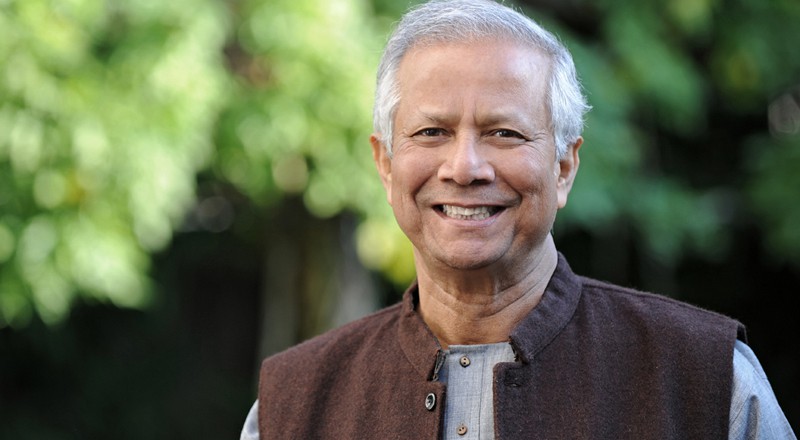A Bonsai Tree Seed and Poverty
“Poverty is not created by poor people”(Yunus 2009). It is the system in which we built our world that places limitations and traps the entrepreneurial spirit of many less fortunate individuals.
Muhannad Yunus, a Nobel Peace Prize recipient as well as the founder of the Grameen Bank published a book, titled: “A World of Three Zeros: The New Economics of Zero Poverty, Zero Unemployment, and Zero Net Carbon Emissions,” Yunus compares poverty to a bonsai tree seed and its inability to grow to its full potential when it is placed in a pot with limiting space. Although there is nothing wrong with these “seeds”, society, just like the constraining pot, does not allow adequate space for the poor to find their opportunity and reach for their goal.
Arguably, Yunus underlines the problematic characteristic of capitalism as the centre of this crisis and views the nature of human motivation as a flawed conception (Ramesh). As it is innate to be driven by self-interest and incentive, Yunus demonstrates that the act of abandoning the selfishness of profit-centred markets and focusing on the selflessness of people’s willingness to aid each other will yield more opportunities for growth in all aspects of an economy.
Despite the fact that different companies will have different metrics – goals that they strive to work towards, as many countries are ruled with a capitalist economy, it is simple for businesses to place an intriguing financial goal in hopes to achieve. In truth, because of the money driven society we built for ourselves, greater wealth, in our society, ultimately opens up more doors as seen by pay-ins to seize a position of sort. Poverty is further accentuated when people better technological advancements for their own benefits; stripping jobs from capable workers in replacement for artificial intelligence rather than using these technologies to work alongside with employees. Siding with Yunus, because society has grown in such an environment where individuals view money as power and the more money the greater status, it is hard to see the wealth magnet we are inevitably drawn to. A money driven mentality in the world of business has the possibility of spiralling into a “revenue at all costs” toxic mindset that takes away from all other facets of that particular company; driving down the workplace environment up brings lawsuits of internal issues as seen with a monopolized taxi company – Uber. Consequently, when individuals of businesses are finding ways to surpass one another to attain the higher wealth, the playing field will continuously elevate itself – making it difficult for someone of a lower privilege to enter the competition field. Thus can be examined in Yunus’ paradox of the bonsai tree seed.
Word Count: 445
Work Cited:
6 lessons for young social entrepreneurs from Muhammad Yunus. (2014, March 18). Retrieved October 12, 2017, from https://yourstory.com/2014/03/6-lessons-young-social-entrepreneurs-muhammad-yunus/
Bornstein, D. (2017, October 10). Giving Capitalism a Social Conscience. Retrieved October 12, 2017, from https://www.nytimes.com/2017/10/10/opinion/giving-capitalism-a-social-conscience.html
Hossain, E. (2013, April 18). Muhammad Yunus, Nobel Laureate, Declines To Comment On Government Arrests Of Bloggers. Retrieved October 12, 2017, from https://www.huffingtonpost.com/2013/04/18/muammad-yunus-bloggers_n_3104075.html
Professor Muhammad Yunus shares views on poverty and risk. (n.d.). Retrieved October 12, 2017, from https://www.nelsonmandela.org/news/entry/professor-muhammad-yunus-shares-views-on-poverty-and-risk
Ramesh, R. (2006, October 14). Banker to the world’s poor wins Nobel peace prize. Retrieved October 12, 2017, from https://www.theguardian.com/business/2006/oct/14/internationalaidanddevelopment.internationalnews
